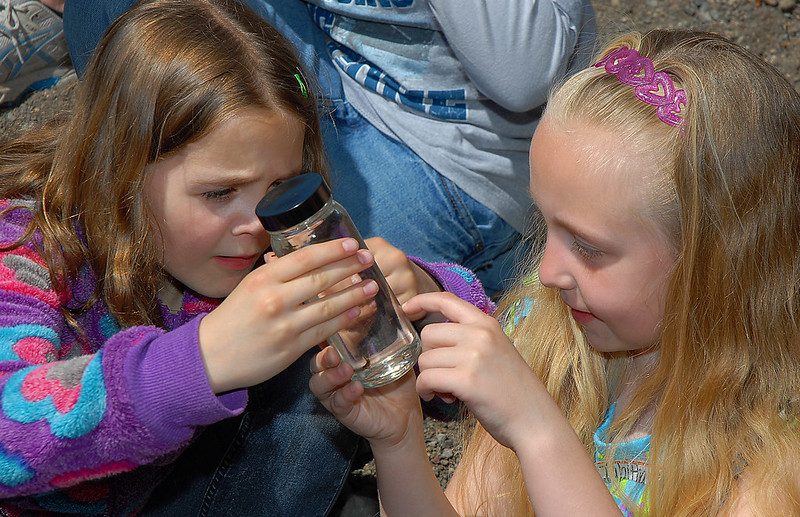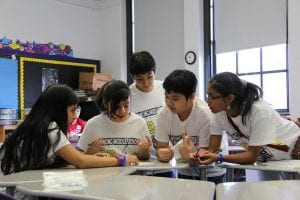Engaging in argument may seem to come naturally to children – especially when they insist that it’s reasonable to eat that extra candy, or are passionately explaining why they should get a pass on another late homework assignment. But not all arguments are created equal. In fact, an argument that isn’t backed by strong evidence is not really an argument at all. Engaging in effective argument is a skill that must be learned, and (perhaps to the distress of parents everywhere) that skill is now being taught in schools.
With the adoption of the Next Generation Science Standards (NGSS), classrooms from grades K-12 are teaching the Science and Engineering Practice (SEP) “Engaging in Argument from Evidence.” Of course, the focus is not on how to get your way in spite of teachers and parents, but rather on how to use effective argument to explain scientific phenomena – “using appropriate and sufficient evidence and scientific reasoning to defend and critique claims and explanations about the natural world.”

Effective Argumentation: A Critical Skill for a Sustainable World
When it comes to environmental studies, scientists are constantly making their own claims, collecting and re-evaluating evidence, and critiquing claims made by others. It is critical to do this effectively in order to communicate the vast impacts that humans are having on the planet and ultimately, to argue for over-arching change. And argumentation is not just limited to science-related fields. Demographers, economists, and governments must construct arguments to understand and communicate societal level trends and to justify policy decisions.
Like most things in the real-world, developing these important skills should start in K-12 classrooms. To that end, we want to support teachers in integrating argumentation skills into their classrooms. Through the end of the year, we will be sharing loads of resources, from both PopEd and elsewhere, that will help you better understand, and better teach, this important SEP.
Resources for Teaching Argumentation Skills
Follow us on Facebook or X (formerly Twitter), or sign-up for our newsletter so you don’t miss the following resources:
- The free teacher webinar, Lessons for Engaging Students in Argumentation: Join us on December 13th for an interactive webinar! You’ll participate in lessons that require students to hone their argument skills around real-world issues like fracking and bag bans. Register today!
- Don’t have time to search for great resources on teaching argumentation? We’ve got you covered. Our social pages will be full of links to articles, lesson plans, and other helpful tools for both deepening your understanding of effective argumentation and how it presents in the NGSS standards, as well as ways to bring it into your classroom. Use #PopEdArgument to follow along.
- A series of blogs will focus on topics like “What Makes an Effective Argument” and the related topic of what makes strong evidence. We’ll also have blogs that outline specific activities for teaching argumentative writing and how to evaluate an argument in classrooms.

Teaching students the skills needed to construct credible arguments and defend their claims is both a key part of the NGSS standards and an important element of developing global citizens who can tackle complex challenges. Having the knowledge of topics like climate change, biodiversity loss, global wealth inequality (or, really, any global issue), is simply not enough. In order to enact meaningful change, students must be able to communicate phenomena to a wider audience in a way that is definitive and based on credible evidence. So let’s dive in to teaching about argumentation!
Image credits: Students examining captured bug (Youth Outdoor Education – Deschutes National Forest by U.S. Forest Service – Pacific Northwest Region is public domain); Students working together in classroom (2013-01-26 Education Rainbow Challenge 238 by dynamojon is licensed under CC BY-SA 2.0)


